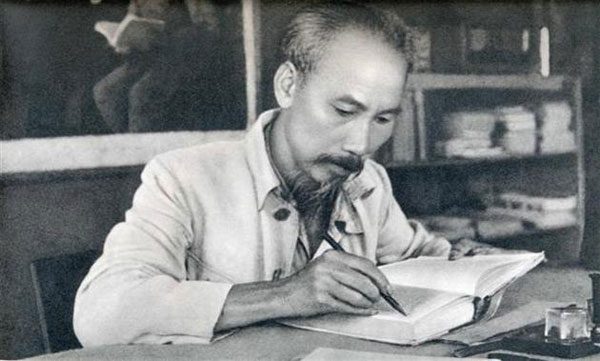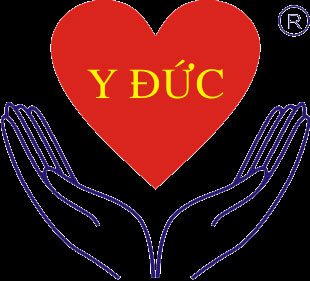Medical ethics is a noble quality of those working in the healthcare sector, manifested in a high sense of responsibility, dedicated service, and heartfelt care for patients, treating their pain as their own. As President Ho Chi Minh taught: “A good doctor must be like a caring mother.”
It is essential to be genuinely united, overcome difficulties, and strive for excellence to fulfill our duties, wholeheartedly building the foundation of Vietnamese medicine. Medical ethics must be reflected through the standards and ethical principles recognized by society.

President Ho Chi Minh.
On February 27, 1955, during a conference for healthcare officials, Uncle Ho sent a letter to the conference, reminding them of three key points:
- First, we must be genuinely united – Unity is our strength. With unity, we can overcome all difficulties and achieve great accomplishments.
Unity between old and new staff, and among all those in the healthcare sector, from ministers and deputy ministers to doctors, pharmacists, and assistants. Although their roles may differ, everyone is an essential part of the healthcare system, serving the people.
- Love for patients – Patients entrust their lives to the doctors and nurses. The government entrusts them with the task of treating illnesses and maintaining the health of the populace. This is a very honorable duty.
Therefore, healthcare staff must love and care for patients as if they were their own family, sharing in their pain. “A good doctor must be like a caring mother” is a statement that rings true.
- Building our own medical foundation – In the years of our nation’s subjugation, healthcare, like other sectors, was suppressed. Now that we are independent and free, healthcare workers need to assist the people and help the government build a healthcare system that meets the needs of our citizens. Medicine should be based on the principles of national science and public accessibility.
Our ancestors had valuable experiences in treating illnesses with traditional medicine. To broaden the scope of healthcare, practitioners should also focus on researching and combining traditional and modern medicine.
Thus, the profound significance of this letter led to February 27 being designated as Vietnam Physicians’ Day since 1955.

Medical ethics is a noble quality of those working in the healthcare sector.
- 1. Caring for everyone’s health is a noble profession. Once you voluntarily join the healthcare workforce, you must rigorously adhere to Uncle Ho’s teachings. You must have a strong conscience and a high sense of responsibility, love your profession wholeheartedly, continuously improve your ethical standards, and strive to enhance your professional knowledge through ongoing learning and scientific research. Be ready to overcome all difficulties and hardships for the sake of caring for and protecting the health of the people.
- 2. Respect the law and strictly adhere to professional regulations. Do not use patients as subjects for experimental methods of diagnosis, treatment, or scientific research without the Ministry of Health’s permission and the patient’s consent.
- 3. Respect the rights of people to receive medical examination and treatment. Safeguard the privacy of patients; ensure confidentiality and politeness during examinations and care. Pay attention to patients in the social welfare policy categories. Do not discriminate against patients or adopt an attitude of superiority, abuse your profession, or cause inconvenience to patients. Be honest when billing for medical examination and treatment costs.
- 4. When interacting with patients and their families, always maintain a warm and dedicated attitude; dress neatly and cleanly to inspire confidence in patients. Explain the patient’s condition clearly to them and their families to foster cooperation in treatment; inform them about policies, rights, and obligations of patients; encourage and motivate patients during treatment and rehabilitation. In cases of severe illness or poor prognosis, make every effort to treat and care for them until the end, while also informing the patient’s family.
- 5. In emergencies, promptly diagnose and treat without delaying the patient.
- 6. Prescriptions must align with diagnoses and ensure the safe and rational use of medications; do not provide patients with substandard drugs or medications not suitable for their conditions for personal gain.
- 7. Do not leave your post while on duty; monitor and promptly respond to the patient’s developments.
- 8. Upon patient discharge, provide thorough instructions and guidance for continued treatment, self-care, and health maintenance.
- 9. When a patient passes away, express deep sympathy, offer condolences, and assist their family with necessary procedures.
- 10. Be honest, united, respect your colleagues, honor your mentors, and be willing to share knowledge, learn from experiences, and help one another.
- 11. When you have shortcomings, take responsibility for them instead of blaming colleagues or predecessors.
- 12. Actively participate in health education campaigns, disease prevention, and care for the injured and sick in the community; exemplify hygienic living practices and maintain a clean environment.
Every year, on February 27, the people of Vietnam have the opportunity to express their respect and gratitude to doctors and nurses, who tirelessly dedicate themselves to the health of their patients. They deserve the attention and support of society. This occasion also serves as a reminder for those in the healthcare field to remember and strive to follow Uncle Ho’s teachings.
In 2024, Vietnam Physicians’ Day will be on Tuesday, February 27, 2024.
Main Activities Typically Held on Vietnam Physicians’ Day
To honor the contributions of doctors and healthcare workers, every year on Vietnam Physicians’ Day, February 27, the Departments of Health in various provinces and cities hold solemn commemorative programs with the participation of local authorities and numerous doctors currently working in the healthcare sector.
Additionally, hospitals and healthcare facilities across provinces also organize meaningful activities to celebrate this special day dedicated to the profession.
On this occasion, the Prime Minister or other high-ranking leaders often visit major hospitals and central hospitals to congratulate and commend the achievements of doctors in recent times, offering words of encouragement for them to continue their efforts in protecting health and treating patients.
Doctors in hospitals also take time to check on the health and provide gifts to patients undergoing treatment in the hospital.


















































